Young Einstein: ways to amplify your brain power

1. Brother's gonna work it out
Take your brain for a mental walk in the park. "The key is to stay active physically and mentally," says naturopath Tracy Wolf. "Challenge yourself mentally every day by playing memory games; solving puzzles, quizzes, Sudoku and crosswords. Learn a new language, try new hobbies, and do things which involve movement (great for incorporating co-ordination, concentration and learning)."
2. Get your blood pumping
Although not always heaven-sent to practice, exercise does holy things to the mind. As Walkley-award winning health journalist, Paula Goodyer says in her new book ‘Fit and firm forever': "What's good for your heart is also good for your head – clean, unclogged arteries that keep blood flowing to your head will also keep your brain cells supplied with the nutrients and oxygen it needs to stay in good shape." She also comments that research indicates exercise helps improve memory; may help people "grow new nerve cells", and can even enlarge the area of the brain which looks after ‘executive function' – in other words, skills such as planning, decision making and multi-tasking.
3. Go ginkgo
Research into the herb ginkgo biloba suggests it has a positive effect on the speed at which someone processes information and picks up new tasks or information. Professor Andrew Scholey and colleagues from Swinburne University's Brain Sciences Institute conducted a study of 78 healthy young participants, receiving a 120mg dose of Gingko biloba. This revealed asignificant improvement in the 'quality of memory' factor, one to four hours after taking the supplement.
4. Monitor medications
According to Tracy Wolf, some anti-depressants, high-blood pressure and pain medication, tranquillisers and insulin can affect memory. Ask your healthcare professional for advice if you're taking any of these and feel it/they may be affecting your cognitive performance.
5. Iron out your iron levels
Particularly if you're female, low energy (and hence, sluggish brain function) may be triggered by low iron levels. One of iron's key responsibilities is to transport oxygen in the blood, so if you're not getting enough, expect to feel tired and be more susceptible to illness.
Go and see a health professional if you suspect you may be at risk. High-risk groups include pregnant women, vegetarians who don't ensure they have a balanced diet, teenage girls, and female athletes. It is recommended that you don't self-prescribe iron, so get expert advice. Also be aware that iron absorption is aided by vitamin C intake.
6. Oh, Omega!
Healthy brains contain high amounts of the omega-3 fatty acid DHA. DHA comprises 40-50 per cent of brain tissue and 60 per cent of eye tissue – it's also is the major polyunsaturated fatty acid in the adult brain, is essential for healthy neurodevelopment, and assist in the transmission of signals between brain cells.
Studies have shown that low levels of DHA are linked to poor memory function, so make sure you're getting your Omega-3s. Around 1000mg (or more) daily is the recommended amount!
More quick tips for a brain power boost
Avoid or limit alcohol as it can damages nerve cells Drink 2 litres of filtered water daily to keep your body and brain hydratedLimit diuretics (e.g. coffee, tea and alcohol), as they extract water from your body Include a small portion of protein in each meal to help maintain blood sugar levels so you don't get tired and become easily distracted. Sources include: meat, poultry, fish, beans, lentils, soy, seeds and nuts, grains and eggs.
References available on request
















Share